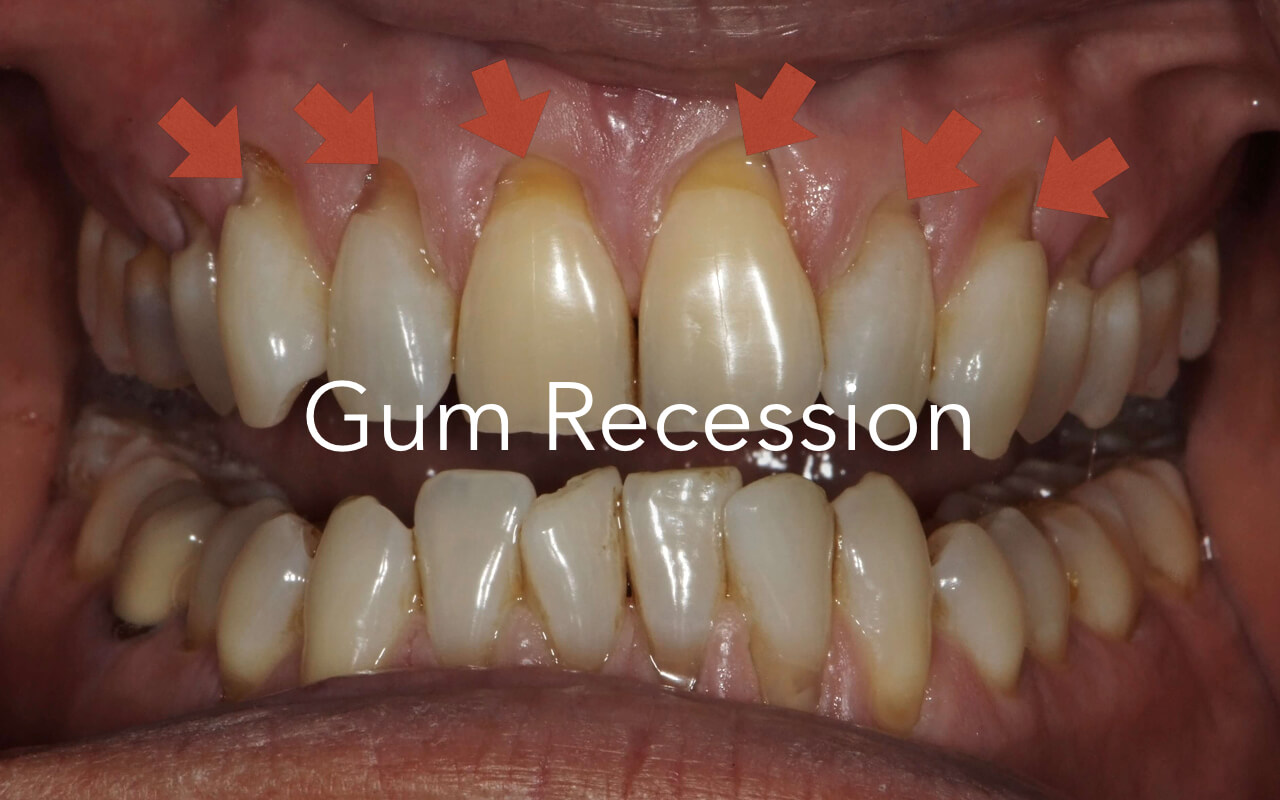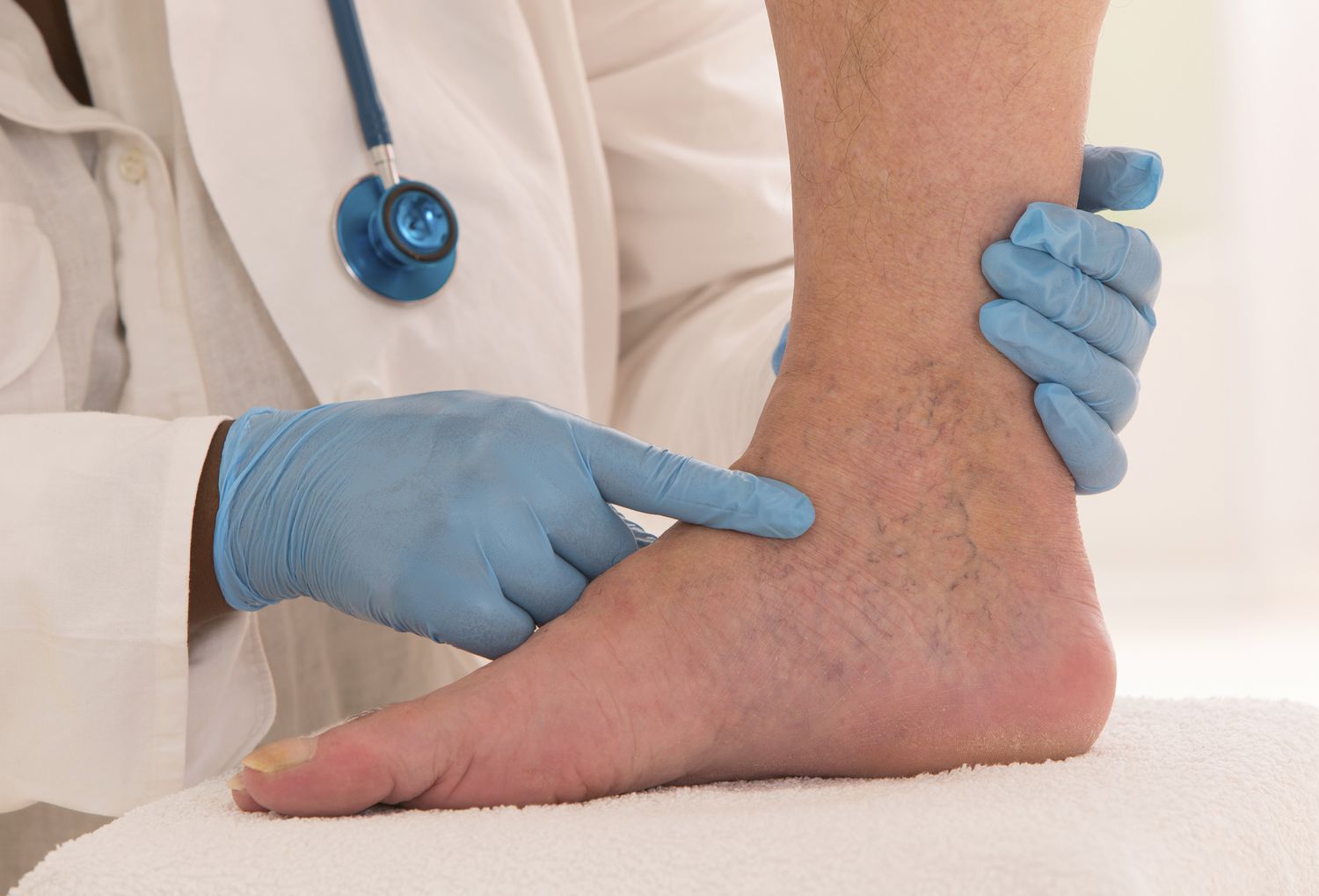Gum recession is a common dental issue in which your gums become pushed back, exposing them to the tooth roots. This problem can lead to pain, and sensitivity and, can expose the teeth to decay, infection, and ultimately bone and tooth loss if left untreated. However, identifying the symptoms and adopting healthy habits can minimize the risks.
Causes
Gum recession is most common in adults over the age of 40 and can be caused by several factors, including:
- Lips or tongue piercings
- Using a hard-bristled toothbrush (can hurt delicate gum tissues)
- Smoking or tobacco use (cigarette and smokeless tobacco)
- Periodontal or gum disease (bacteria from plaque buildup can cause infection)
- Heredity (family history of gum disease)
- Brushing too hard in the long term
- Plaque build-up due to poor dental hygiene
- Misaligned teeth
- Damage from dental work
Symptoms
Identifying general symptoms can help you to get accurate treatment. Here we are sharing common symptoms of receding gums so please keep reading and stay connected with us to maintain your oral health:
- Swollen, red, gums
- Persistent bad breath (due to gum disease)
- Bleeding after flossing or brushing (due to damaged or weak gum tissues)
- Sensitivity to heat and cold
- Loose teeth (due to severe gum loss)
- Changes in tooth appearance, such as teeth looking longer and space elevating between your gums and teeth
Note: Several individuals may not experience symptoms, and they may not be aware that their gums are receding.
Effective Treatment for Gum Recession
Although receding gums that receded can’t grow back, there are numerous treatment options to prevent them from receding more. The suitable treatment for gum recession will depend on the causes and the severity of the recession.
- Deep Cleaning (Scaling and Root Planing): If you have bacterial buildup along your gum line, your dentist will perform a deep cleaning procedure to remove plaque and tartar from beneath the gums. This helps get rid of infection and decreases inflammation.
- Antibiotics or mouth rinses: In cases where an infection is present, your dentist may prescribe antibiotics or antibacterial mouthwash to help manage bacteria and prevent further gum loss.
- Surgical Interventions: For the treatment of severe cases, surgery may be needed by your periodontist to eliminate bacteria, that’s deep under your gums or to substitute missing gum tissue. Typically, there are two types of surgeries for gum recession, including gun grafting and flap surgery.
- Gum grafting. In the gum grafting surgical procedure, your surgeon places a piece of synthetic material or healthy gum tissue from another part of your mouth onto the concerned roots to lessen the appearance of your receding gums and to guard the sensitive tooth roots.
- Flap surgery. During flap surgery, your surgeon performed a deep gum tissue cleaning to remove bacteria and tartar within the gums.
How to Prevent Gum Recession?
Here we are providing you with some tips to prevent gum recession. You can get the long-term benefit of preventing gum recession by following these instructions, so keep reading we are near the conclusion.
- Consume a healthy diet(a balanced diet rich in vitamins C and D)
- Floss every day (it reduce the risks of gum disease)
- Brush gently with a soft-bristled toothbrush (it can wear away gum tissues and enamel)
- Quit smoking or using tobacco
- Regularvisit with your dentist (cleanings twice a year)
- Use fluoride toothpaste (fluoride makes stronger enamel and reduces sensitivity)
- Wear a mouthguard if you grind your teeth (prevent damage caused by bruxism)
Conclusion
Gum recession can cause serious risks to your oral health if you ignore it and left untreated, causing infections, tooth sensitivity, and even tooth loss. Recognizing the causes, such as poor brushing habits or gum disease, permits you to make a start early.
;Taking care of your gums isn’t just about having a bright smile; but it’s crucial for maintaining strong, healthy teeth for your life. Be practical, and don’t ignore early warning symptoms of gum issues. With accurate care, you can enjoy better oral health and prevent the complications that come with gum recession.








